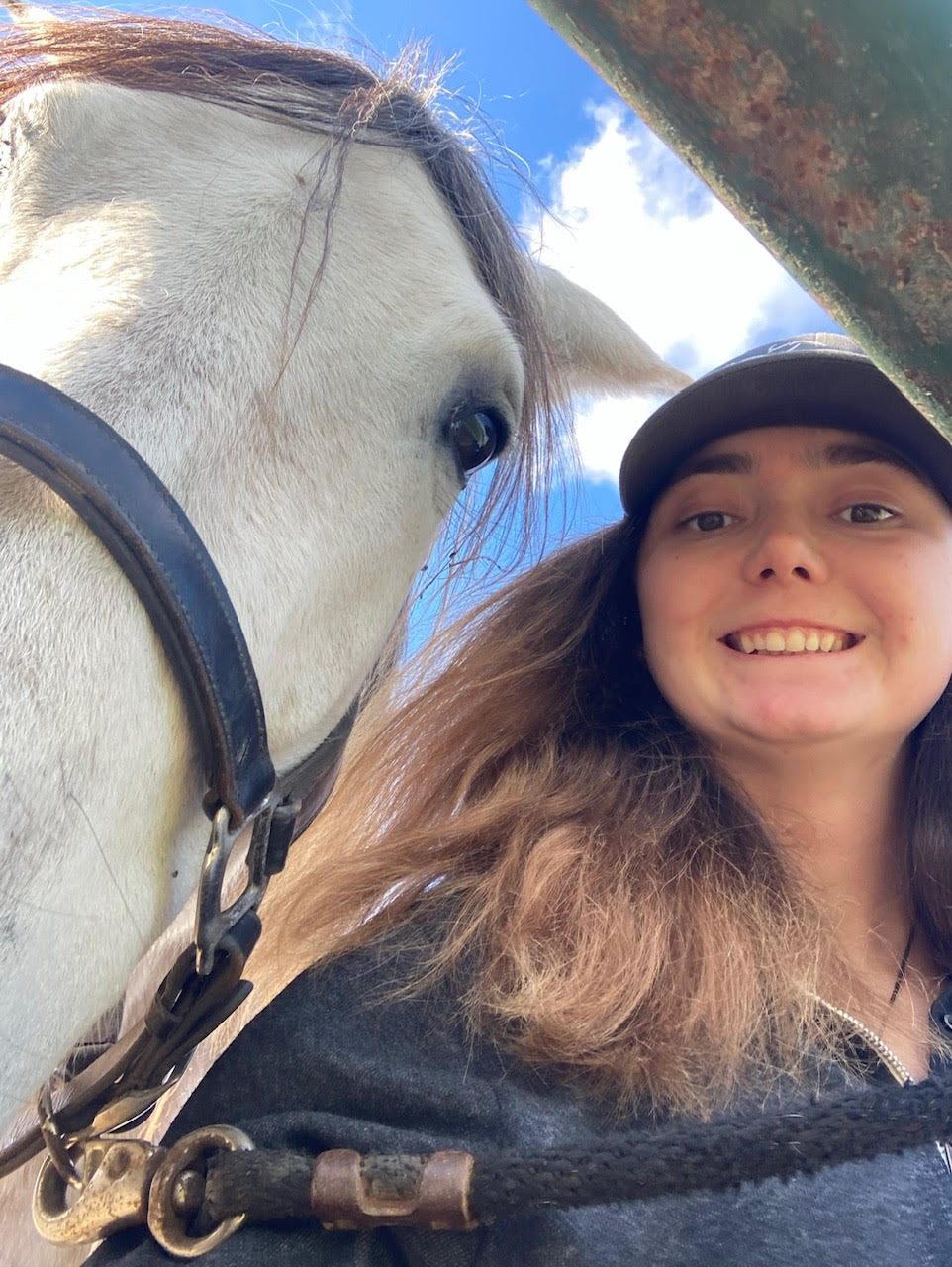What Makes a Novel Great
“…the sign of a great novel is that the author creates a world and when she moves her hands away, the world is still in motion.”

“…the sign of a great novel is that the author creates a world and when she moves her hands away, the world is still in motion.”

Eternity visits in different ways;
to some in a cloud of incense
to others with a distant gaze;
To some it comes while eating a peach
to lovers while strolling on a sun-kissed beach
poets may meet
in their imagination
and lovers of nature
while drinking in the beauty of a forest reborn
in the heart-clutching palette
that comes with each dawn
Workaholic types might meet it
on an overdue vacation
and sometimes it even winks
at a whole generation
All in all it’s an awesome thing
these sweet, sweet moments
that eternity brings
while whispering the promise
of a life made whole
And the hope of refreshment ‘
with a tall cool glass
of Gatorade
for the soul
– by David Klein
Copyright 2022
Booksandmocha.com
Silicon Valley…a place where frost is rare and snow a once-in-a-lifetime occurrence; a place once celebrated for the fragrance given off by clouds of fruit petals from the orchards that dotted the region—a fragrance so sweet that the region was known as “Valley of Heart’s Delight.”
And then they came – investors and engineers and visionaries intoxicated with the idea of creating a brave new world based on technology. They arrived in the wake of World War II, a world-changing event that marked the San Francisco Bay Area’s emergence as an epicenter of enterprise and technology. Despite its many charms, however, the fabled City by the Bay, known for its world-famous Golden Gate Bridge and for its status as a magnet for free spirits from all over the world, was largely bypassed in favor of its rustic neighbor to the south – Santa Clara County.
For it was that place; a dreamy little valley famous for its forests of plum and prune trees, that drew this most recent kind of immigrant. These newcomers were known for their—as often as not— iron-hard egos, limitless self-confidence and an almost messianic faith in the future of technology. Charged with and by the internal combustion of their own ambition to do something new and (just as often) staggeringly rewarding in terms of profit, these new pioneers bypassed the office-lined canyons of San Francisco’s financial district for the leafy environs of Stanford University and the orchards that ringed it. This area would soon become known all over the world as the virtual offspring of an element – silicon – that was inexpensive, abundant, and used in the manufacture of integrated circuits.
It was an invention that was about to change the world.
On the surface, to be sure, there was a difference between this boom and previous booms. This one rested as much on the backs of math and science majors as on the spunk of its salespeople. Among the former group were many with advanced degrees in electrical engineering and the brand new science of computing. Many of those who were part of this entrepreneurial explosion were—unlike Rockefeller and Carnegie and the fabled “robber barons” of their grandparents’ generation—the offspring of tree-lined suburban streets rather than the products of hardscrabble farms or Old World poverty.
Before he ascendance of this area manufacturing and much else rested on the exploitation and marketing of natural resources such as oil, rubber, and industrial metals.. This development, however, was something new; for in this one intelligence was not merely an important element in the exploitation of raw materials, but rather the main raw material itself. It was, in fact, the collaboration of the region’s educational and research institutions, such as Stanford University and the NASA Ames Research Center, that marked Silicon Valley as a unique incubator of IQ-driven profitability.
It should be pointed out, though, that this new IQ-based era had much in common with previous ones in one respect, for these new lords of enterprise were no less motivated to win than their 18th and 19th century counterparts. These electronics and digital pioneers, driven by the love of the (business) game, a hunger for recognition for their derring-do, were “in it to win it” (or a little bit of all three) just as much as were yesterday’s oil or steel barons. Silicon Valley promised – and continues to promise – to test their mettle in their attempt to climb their personal Everest.
This ongoing saga of ambition and enterprise is not over yet, and as with all historical happenings, todayś news is liable to be outdated by tomorrow. What if Silicon Valley had spends the next 40 years churning out vaccines and medical breakthroughs, and other life-sustaining technology as doggedly as it has spent the last 40 years churning out ever more powerful computers, ipods, iphones, ipads, video games and other such devices? We have the 25th century right here in Northern California. Hopefully it will meet us in the 21st century and spend the next 40 years — if we have that long — to help us prevent future pandemics from wiping us off the map.

Interview With Author Gary Shteyngart
.Shteyngart has recommended A brilliant look at Ukraineś history through a very personal lens Read More

Rescue Your Money
by Ric Edelman
It’s really simple.
Isn’t it?
Step #1:
Work hard your entire adult life, save $100,000 or more and invest it wisely in a variety of sectors: CD’s, bonds, real estate, the stock market (hopefully mostly blue-chip stocks)
Step #2:
Wait to reap the rewards of your patience and hard work.
Now let’s cut to a scene where an elderly couple looks at their online balance sheet and realizes that the 100k they invested in 5-year CD’s is now worth about 65 thousand dollars.
What happened?!
Didn’t take inflation into account?
Transaction costs?
Bought too late, sold too soon?
OR, and this may be one of the main roots of portfolio failure, you just didn’t know what you were doing?
On November 14th 2012, a headline in Forbes Magazine warned: ‘ market sell-off after Obama’s re-election no accident; recession coming’. The article stated: ‘Now that the election is over stocks are dropping with no bottom in sight. This is no accident, given investors’ fears of higher taxes and continued big-spending…we are headed for a recession.’
…the very next day after that article appeared…November 15th, 2012, a post-election stock rally began. As you may recall, stocks rose throughout 2013, with the S&P 500 posting again nearly 30% for the year—it’s best in 18 years. The Dow Jones Industrial Average ended 2013 of 26.5%, and the tech-focused NASDAQ a whopping 38%. The increases continued, though to a lesser extent, through 2014.”
Author Ric Edelman doesn’t make you wait until the end of the book to let you in on the Big Secret to making a profit on your investments, rather than seeing them fall prey to the ravages of time and taxes (like the couple just mentioned). Instead, he shares his knowledge about wise investing right from the git-go, in the first few pages of this book.
That’s the beauty of Rescue Your Money. We are not called on to wrap our heads around the outermost reaches of economic theory or grasp the innermost workings of financial markets so well that we would be quite capable of holding our own in a discussion with hedge fund managers or high-earning MBAs.
Instead, the author offers clear, simple and practical suggestions about how to navigate the market and see your investments prosper. Rescue Your Money, with its emphasis on a smart, steady and patient approach to investing, may be particularly useful for younger investors, since they have plenty of time to work out their investment learning curve.
The fact of the matter is:
If you´re a Millennial or member of Gen Z, thereś a good chance youŕe an investor.
If you are a Millennial woman, there is a good chance youŕe doing better in the market(s) than your male contemporaries:
¨…73% of Gen Z investors, 66% of millennial investors and 67% of investors ages 18 to 40 overall own stocks.¨
– ¨Millennials and Gen Zers Are More Invested in the Stock Market Than Other Financial Assets, Including Crypto¨
–Yaёl Bizouati-Kennedy on Yahoo.com..11/04/21
¨There’s good news for the growing share of women pursuing investing: Despite their lack of confidence, women investors tend to outperform men.
Just over two-thirds of women now invest outside of retirement, up from 44% in 2018, according to Fidelity Investments’ 2021 Women and Investing Study, which polled 1,200 women. Broken down by generation, that share is even greater among Millennials, at 71%. Among Gen Xers, it’s 67%, and among Baby Boomers, it’s 62%.¨
– ¨With more money saved, Millennial women show greater interest in investing¨
– Caitlin Mullen, Bizwomen contributor (https://www.bizjournals.com/bizwomen).
Sound interesting?
Get that cup of cold brew coffee going and read on.
Edelman lets us know right away what the Iron Law of Investing is:
Buy Low and Sell High.
Okay. Now we know what to aim for…optimize every penny and look for the right opportunity. But to do that, you have to be ahead of the game. The first step—and this is where the author really earns his keep, in letting us know which assumptions and preconceptions are keeping us from making our stock picks work—is to get rid of those attitudes that are keeping us down. Most importantly, we need to:
Get Real!
That means don´t get carried away with useless KPIś (key performance indicators).Youŕe not trading percentages. You’re trading money! As the author reminds us, if you think your investments are successful because they’ve lost only 30% of their value while the market as a whole has lost 35%—even though you lost money—you really need to consider (or at least auditing a class in ) Investing 101. And that’s what this book is; a return to basics and an invitation to act from a place of patience, persistence and a willingness to do your due diligence rather than succumb to the gambling fever that leads so many investors to lose their hard-earned cash in financial markets.
The problem is, according to the author, that so many of the millions of people who have become investors—thanks to the ease and availability of online trading —allow themselves to be seduced by the twin devils of fear and greed. Instead of buying when the price is right, they wait till the investment becomes front page news. Then they jump on the bandwagon after the price has gone way up. Then, when the price starts to seriously dip, they sell—at a loss—in a fit of panic
Rescue Your Money stresses fundamentals, What makes this book stand out is its insistence on the need for discipline and the willingness to constantly learn for anyone who wants to succeed as an investor. His starting point seems to be this: if your perspective on something’s not quite right, then everything you do will be subject to failure—no matter how wisely you intend to act. Underlying his take on what it takes to be a successful investor is this: for little fish to reap a profit from their investments, they have to think and act like big fish as much as possible. The brave heart of the warrior has its place in all things that involve risk. Still, it is the cold, clear head of the well-trained and highly disciplined soldier that you want to guide you through the rough and tumble of the financial market. Or, as someone said about what it takes to make it as an online trader: “Whatever else you have going for you, when it comes time to execute a trade, you have to be able to click on that key(s) or that mouse button without hesitating or letting your emotions get the best of you.”
The wise old (and in some cases not-so-old) owls of the market are just waiting in the wings with cash in hand to gobble up those severely depreciated bargain stocks that will return a great big profit after they’ve recovered from the downturn. They are able to spot those buy-in opportunities because they’ve done their homework. If their stocks look like they’re tanking or going to tank they will have an exit strategy in place that will spare them losses beyond what they’re ready to bear.
His success as an investor is not based on a rare and uncanny ability to guess better than most when the top of a bull market or a bear market’s low point. In fact he goes deep by giving us some useful advice on something that is basic to investing This is where he mentions the two “truths”— as these fallacies are so often regarded by unwary investors— that keep people from investing successfully.
False) Truth #1:
Stock Prices Rise and Fall
In order to make this work for you, you have to be able to time the market. To do so investors “follow fads, trust the media, rely on so-called experts, or make big bets on blue chip stocks or hot sectors.” (Ch. 4 {mention title of ch. 4})
Actual Truth #1:
Over the course of a 66 year period (1956-2015) and 11 downturns, the market swung back boldly into the black, gaining somewhere between 56 and 229% of its value after losing somewhere between 14 and 52% of it. The market is not the roulette table at Bellagio’s. In fact, looking at your portfolio every day (or even worse, several times a day) is a big mistake says Mr. Edelman. In fact, according to research, people who do so tend to do worse than those who do not!
The solution?
Don’t panic and sell. Instead, how about working with the 15 year cycle as analyzed by Ibbotson Associates?
False Truth #2:
The stock market is risky, volatile and unpredictable.
Actual Truth #2:
Yes it is (risky, volatile and unpredictable), if you want a quick return. On the other hand, the NYSE’s value today is 100 x greater than it was 100 years ago.
Rescue Your Money is too deep and too chock full of information to present it all here, but there is one thing that is basic and involves a very interesting suggestion meant to guide us into the right “take” on buying and selling:
Now author Edelman has something interesting to say about making your portfolio grow (in Rescue Your Money ch. )
Sell High
Buy Low
What’s going on here?!
Right in the first chapter of the book he tells us to buy low and sell high. Is he now telling us to do the same thing but different? Has the author decided to forsake the serious business of market analysis for the lols of the brain-teaser market?
No. Not at all.
What he means (ch. ) is. Just as you would do well to consider the cost of your most basic raw material for your backyard garden – seeds, fertilizer etc. – you would likewise do well to consider the source of your investment income. As in all things, planning ahead in a systematic way will get you a lot farther than acting on the spur of the moment.
Selling high and buying low are two sides of the same coin; or, if you prefer, the x and the y of a mathematical equation. If you treat selling high as a means of raising capital for further investment, then you are helping to solve one of the biggest problems that individual investors face—having a steady and reliable source of income that will enable you to be ready to buy right at the right time with income that comes from your investment rather than from your pocket (just like the biggest institutional investors…aka big fish)!
Like fellow investor and investment consultant Robert Kiyosaki, Ric Edelman is that rarest of combinations: a thinker, a doer and a teacher. Heś helped to make billions for his clients, has the ability to take something that is hardly an exact science and explain it as clearly as possible, and emphasizes the need to correct wrong attitudes and assumptions, since they underlie much of the failure of your average investor to see his or her investments return a profit.


Feminism isn’t about making women strong. Women are already strong.
It’s about changing the way the world perceives that strength.
– G.D. Anderson
There is nothing stronger than a broken woman who has rebuilt herself.
– Hannah Gadsby
Life is tough my darling but so are you.
– Stephanie Bennett-Henry
Women are the real architects of society
– Cher
The most important thing one woman can do for another is expand her sense of actual possibilities.
–Adrienne Rich
We realize the importance of our voice when we are silenced.
-Malala Yousafzai
Always be a first-rate version of yourself instead of a second-rate version of somebody else.
-Judy Garland
Well-behaved women rarely make history.
–Eleanor Roosevelt
You should never let your fears prevent you from doing what you know is right.
-Aung San Suu Kyi
Where there is a woman, there is magic.
-Ntozake Shange
I am grateful to be a woman. I must have done something great in another life.
-Maya Angelou
As soon as I had enough agency in my life to grow up, I became who I am.
-Janet Mock
I have learned over the years that when one’s mind is made up, this diminishes fears;
Knowing what must be done does away with fear.
-Rosa Parks
No one can make you feel inferior without your consent.
-Eleanor Roosevelt
There is no limit to what we, as women, can accomplish.
-Michelle Obama
Think like a queen. A queen is not afraid to fail. Failure is another stepping-stone to greatness.
-Oprah
If you want something said, ask a man; if you want something done, ask a woman.
-Margaret Thatcher
Human rights are women’s rights and women’s rights are human rights.
-Hillary Clinton
The most courageous act is to think for yourself. Aloud.
– Coco Chanel
We need to reshape our own perception of how we view ourselves.
We have to step up as women and take the lead.
– Beyonce

Writing and horses…any connection there?
There is definitely a connection between writing and my equine activities. I sat on my first horse when I was about 4 and continued for the next 17 years. As a child, I always used to fantasize about being this big-time trainer with a ton of horses and clients. Of course, I know now how expensive horses actually are and how unrealistic my dreams were, but these fantasies were what sparked my interest in writing because I had no way of voicing these dreams so they became stories.
Many of my stories contain an equine aspect as it is a topic I am very familiar with and enjoy writing about.
When and how did you get the “writing itch?” Are / were any family members, writers? Did you have a love affair / was fascinated by words at a very young age? Were there any events, such as school awards or positive reactions to something you wrote, that boosted your self-confidence as a writer?
As far as a big inspirational story that sparked my “writing itch” I don’t have one. As a kid, I always had a book in my hand. I’d rather sit on the porch and read a book than head over to the neighbors and play. That being said, the neighbors were also half a mile down the road on another farm. I grew up most of my childhood in Ottawa, Illinois before moving to Naperville in the middle of third grade.
I did have this drive in high school that lasted for about 3 months where I just couldn’t put down my pen. Every class I was writing, even in my automotive class I was focused on an early book of mine. Never in my life had I ever felt anything like it. It was like I was there, in my own story, living through the eyes of my characters. It seemed to have died down after I finished and abandoned the book, but now and again I will get that extreme itch, but it never lasts as long as it once had.
In school, I was never one to express my writing to anyone. I took a couple of writing classes and had my own stories going on in the background, but my main extracurricular focus was music and horses. I entered college as a Music Education major, developing relationships with orchestra teachers across the country. It was only when COVID hit two years ago that I began to further develop my writing career.
Authors…who speaks to you; who inspires you?
As a child, my all-time favorite author was Erin Hunter. She wrote and continues to write the series “Warrior Cats.” Her books were the reason I began writing stories of my own. She knew just the right words to use to lead you into the woods where the cats dwelled. Of course, the name Erin Hunter is just a pen name used by Victoria Holmes, Kate Cary, Cherith Baldry, Inbali Iserles, Tui T. Sutherland, and Rosie Best, but as a kid—and even now—I believe Erin Hunter was the best children’s author of all time.
When and/or how did your current novel begin to take shape in your mind?
I talked about my first novel (the one I abandoned) in high school, but I knew that one was never going to be anything other than a good idea. The novel that I aspire to get published and out there into the world began about two years ago at the beginning of COVID. Some of the characters in the novel are inspired by my music teachers at the College of Dupage. A friend once told me that most writers develop their characters based on real people in their lives and I couldn’t think of better choice of real life influences.
This novel is a slowly developing story meant to draw the audience slowly and subtly into the lives of the characters. When I first started thinking about this book I wanted the main conflict to be something that a lot of people can relate to—dealing with loss.
Have you lived or spent a lot of time in a college town or on or around college campuses? Does the academic world hold a particular attraction for you?
I spent my first two years at the College of Dupage as a music major with a minor in writing. In attending this college I commuted and spent the rest of my time working two jobs. The next year and a half I spent at Elmhurst University taking online classes due to the pandemic. It is only during my last semester at EU that I get to experience life at a University. That being said, I very much enjoy the academic world and cannot see myself stopping anytime soon. Some people can’t wait to graduate and get out of the classroom, but I enjoy sitting down, listening to the stories of the past and looking forward to what has yet to come.
How has it been for you personally, working on your first novel? What has it been like to break the ice and do some serious writing; getting in the zone and tapping into your imagination? Have you always preferred fiction to nonfiction? Do other genres interest you…screenplays, poetry, song lyrics, plays, etc.
Personally, working on my first novel is hard. There are so many ways that it can go, so many paths for my characters to take and I have to choose the right one that my audience and I will enjoy. The topic and theme of my writing is always of a serious nature. Non-fiction has never been much of an interest of mine, mostly because I am a dreamer. Every experience I have had, there is always a spot in the back of my head where I imagine all the different ways that it could have gone, and sometimes they can be extremely unrealistic.
My interest in other genres is minimal. I’ll mess around with some poetry and screenplays, but they never capture my full attention.

On his 35th birthday, Misha Bobitch, lover of chess and unavailable women, left Russia for a new life in the New World. Read More


stop thinking about how things aren’t going your way
stop thinking about going away
stop thinking about how people used to be, how you used to be
stop thinking about the worst
stop thinking that you’re cursed
stop thinking about what went wrong
at least, stop thinking about it for long
stop thinking about what-ifs
stop thinking about forgotten gifts
stop thinking about life in a negative way
stop thinking you’ve got nothing to say
stop thinking about broken parts
stop thinking about shattered art
stop thinking you’ve got nothing to give
stop thinking you’ve got nothing to take
stop thinking that time goes too fast
stop thinking that good moments never last
stop thinking change is inconceivable
stop thinking bliss is not achievable
stop thinking love is a lie
stop thinking that hope is bound to wither and die
stop thinking it’s too late
stop thinking
stop thinking
start doing.